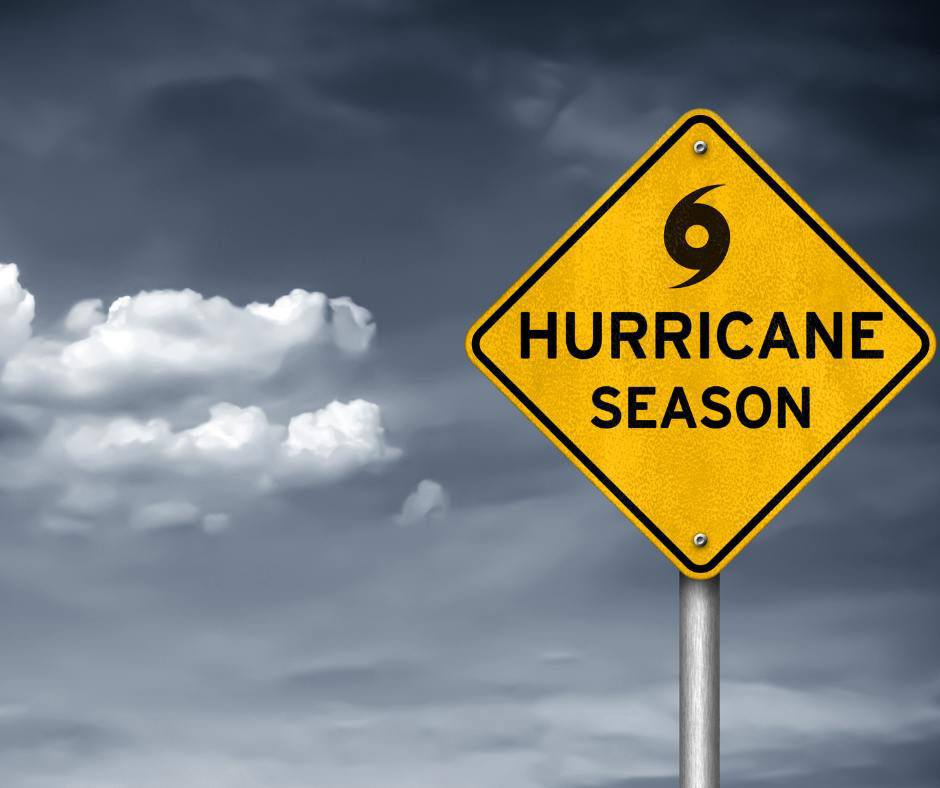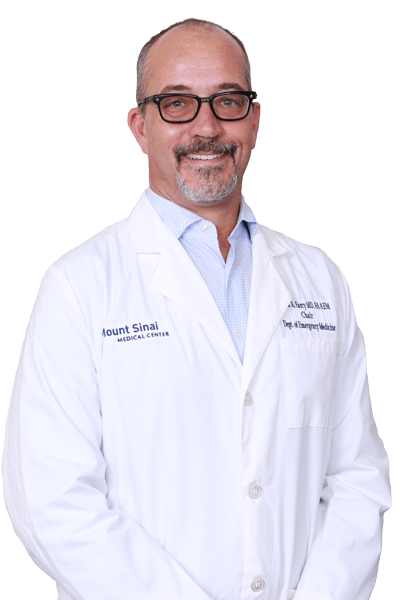Mount Sinai’s Director of Emergency Medicine shares an extensive guide to hurricane season
As the 2023 hurricane season approaches (predicted to be slightly less busy than previous years), it is extremely important to be prepared should a storm hit our area. In fact, the key to successfully getting through this time of year is to prepare for hurricane season before it actually begins.
Hurricane season spans from June 1, 2023, to November 30, 2023, and staying informed of potentially threatening weather is critical during this time. Thankfully, the National Hurricane Center issues regular advisories at www.hurricanes.gov, which you can access in real time.
There are various types of advisories and categories for storms, which are important to pay attention to, such as the following:
- Watches are typically issued for weather affecting an area in 48 hours
- Warnings are typically issued for weather affecting an area in 36 hours
- Advisory categories are as follows:
- Storm Surge: the possibility of life-threatening shoreline inundation
- Tropical Storm: sustained winds of 39 to 74 mph
- Hurricane: hurricane conditions and sustained winds, greater than 74 mph
- Extreme Wind: major hurricane conditions and sustained wind, greater than 115 mph
It’s crucial to have a plan for yourself and your loved ones, pets, and property. This month, review your stock of nonperishable food and emergency supplies and remove any loose limbs from trees, or any items surrounding your home that could be carried away by strong winds.
Preparing once a storm is in the forecast:
- Water: Plan to have 4-6 liters of drinkable water per person in your house, for at least seven days. If a hurricane warning is announced, fill your bathtub with water to flush toilets, and for personal and family hygiene.
- Money and important documents: Make sure to have some cash and your important documents secured.
- Medication: Make sure everyone has a two- to four-week supply of any needed medications. Remember any medications for your pets, too.
- Food: Consider meals, ready-to-eat (MRE), as they have an extensive shelf life and provide the calories required for the day.
- Stay informed and powered on: Have a battery- or hand-powered generator (see image). This will provide important information. Maintain an operational cellphone by keeping the battery fully charged.
- Pets: Have a storm plan with your family for your pets.
- First aid: Make sure your household is stocked with basic first aid supplies.
- Gasoline: Make sure all your cars are fully gassed up before the storm arrives, as stations may lose power or sustain damage, and stay closed.
- Cars: Plan on parking your car on high ground. If you live in a zone that always floods, park your car in one of the area’s public parking lots, on a high level.
- Other items: Make sure you have extra flashlights, extra batteries, rain clothing, etc.
- Evacuation: An evacuation plan is essential. If so ordered, it is crucial to evacuate early. Miami’s residents too often refuse to evacuate, and this can lead to injury (and even lives lost) during a high-grade storm.
If you are here during a particularly bad storm, make sure to take refuge in a small, interior room, closet, or hallway, on the lowest level during the storm. Put as many walls between you and the outside as you can. Other important tips for waiting out a storm at home include the following:
- A bathtub, with a mattress over the top, is a safe location during the worst part of a storm.
- Throughout the storm, stay away from windows, skylights, and glass doors.
- If the eye of the storm passes over your area, there will be a short period of calm. But as the wall at the other side of the eye arrives, the wind speed rapidly increases to hurricane forces coming from the opposite direction. It is critical to stay inside until the entirety of the storm (eye included) moves past your area.
- Stay safely sheltered in place during the storm, as 911 services stop running while winds are over 51 mph.
- After the storm passes, do not use gas-powered generators or any other gas-powered equipment indoors, and ensure all family members (or others sheltering with you) know the danger. Sadly, in every hurricane or natural disaster, people die due to carbon monoxide poisoning.
Should you need medical attention:
Our Mount Sinai Miami Beach Emergency Department remains open during hurricanes and severe storms, and serves as a command center for Miami Beach Police and Fire Rescue.
Bear in mind, if winds reach 50 mph or more, ambulances, police cars, and fire trucks will not be able to dispatch until the winds die down. This can sometimes create a backlog of emergencies.
What’s more, even the most thorough preparedness may not keep you away from needing emergency care.
Thankfully at Mount Sinai, we have an effective, extremely organized triage system and access to three emergency centers across Miami-Dade County, including the only emergency department in Miami Beach.
Unlike most hospitals in Miami-Dade, all of Mount Sinai’s emergency physicians are board-certified in emergency medicine by either the American Board of Emergency Medicine (ABEM) or the American Osteopathic Board of Emergency Medicine (AOBEM).
That means our physicians undergo rigorous specialty training to respond to, diagnose, and treat medical and surgical emergencies using evidence-based care.
At Mount Sinai, we offer an emergency medicine experience that offers patients efficiency, comfort, and personalized attention.
The emergency department does not operate on a “first come, first served” basis. Instead, we use an effective triage system to make sure every patient receives care based on the severity of their medical circumstances.
From lacerations to broken bones to sudden accidents, our trained team is equipped to treat a wide array of medical issues, quickly and efficiently.
Learn more here:
https://www.msmc.com/medical_care/emergency-care/program-overview/
*Please note: This is a partial list. Please refer to the American Red Cross site for further information: https://www.redcross.org/images/MEDIA_CustomProductCatalog/m4340160_Hurricane.pdf



